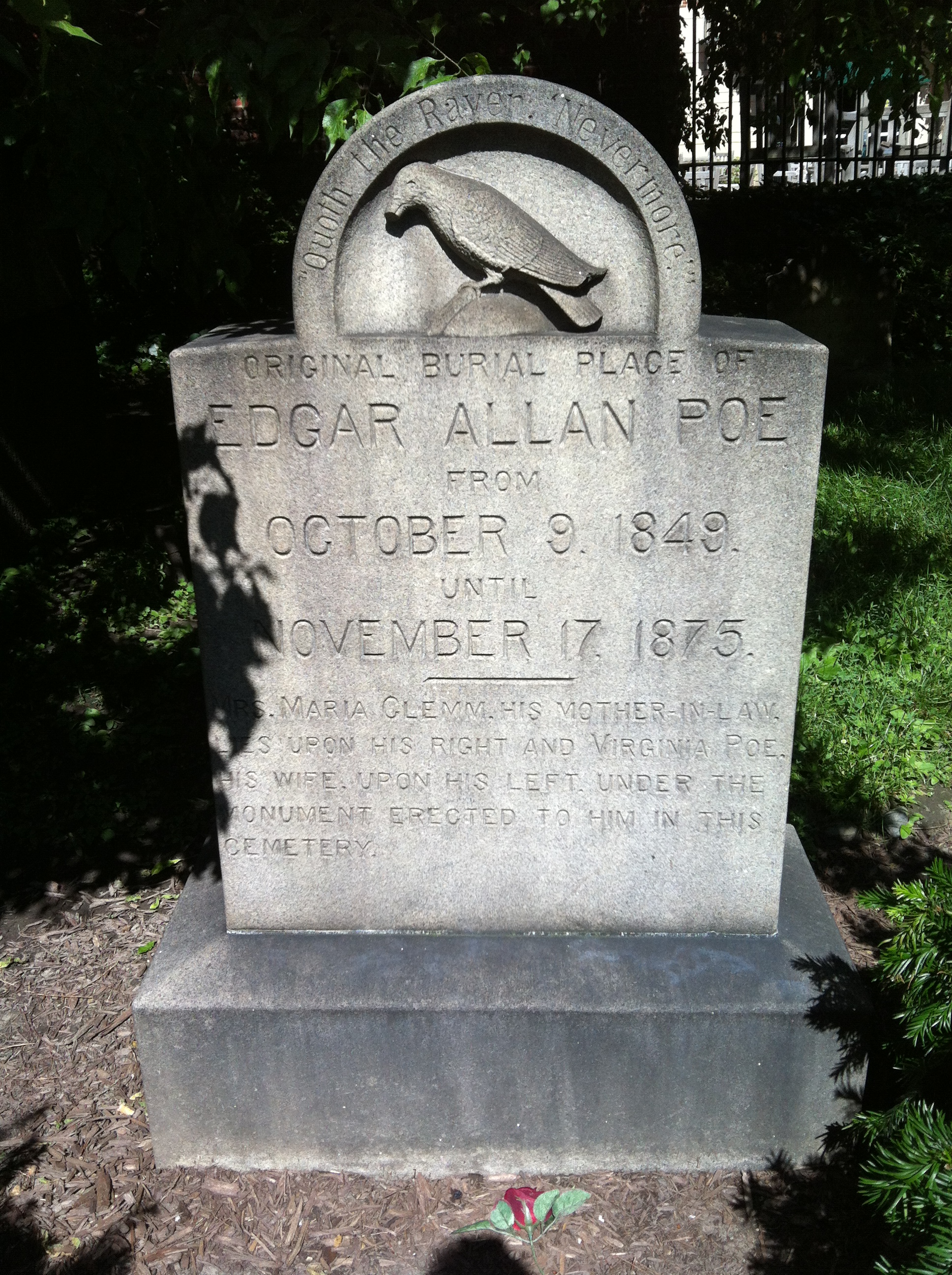Table of Contents |
guest 2026-01-01 |
Speakers
Dario Amodei, Ph.D.
Michael Bereman, Ph.D.
Meena Choi, M.S.
Christopher M. Colangelo, Ph.D.
Richard C. King, Ph.D.
Christopher R. Kinsinger, Ph.D.
Brendan MacLean
Stephen Pennington, Ph.D.
Jeffrey Whiteaker, Ph.D.
Kristin R. Wildsmith, Ph.D.
Event Information
Directions to Westminster Hall
Thanks!
On June 15th, 2014, the third Skyline User Group Meeting was held in Baltimore at the Westminster Hall, preceding the ASMS conference. It was a bit of a trek from the conference center, but the space achieved a new level in escape from corporate conference surroundings; a former chapel with 3 levels of seating (including a balcony), tall windows (reminding us of the sun outside), an organ behind the projection screen and outside a graveyard in which Edgar Alan Poe was buried. At final count, a crowd of 230 people came together to share and discuss exciting uses of the Skyline software platform. Host Michael MacCoss introduced the 10 speakers in succession with questions interspersed and a half-hour break after the fifth speaker. As at the past two meetings, responses were very positive. You are invited to review the presented material or watch the recorded presentation videos now linked at the bottom of the presenter abstract pages. Click the presentation titles below to access the presentations.
Thank you very much to everyone who attended, and especially the presenters for giving your time so generously to make this third year such a great success!

Speakers
Eight speakers with interesting and different areas of expertise in Skyline use and development have agreed to speak at the Skyline User Group Meeting at ASMS 2014 in Baltimore, MD.
Dario Amodei, Ph.D.
 |
Dario Amodei, Ph.D., is currently a postdoctoral scholar at Stanford University School of Medicine, where he works on developing new acquisition methods for mass spectrometry with applications to protein network modeling and biomarker discovery. Prior to Stanford, Dario earned his PhD in physics at Princeton University on Hertz and NDSEG fellowships. His PhD work, which involved statistical mechanics models of neural circuits as well as developing novel devices for intracellular and extracellular recording, was awarded the 2012 Hertz doctoral Thesis Prize.
Multi-Instrument, Skyline-Based Comparison of DIA Peptide Detection and Statistical Confidence ToolsData Independent Acquistion (DIA) promises sensitive, reproducible proteome-wide measurements, but also presents serious challenges of peptide detection and statistical confidence. This presentation will focus on the new advanced chromatogram peak picking model, based on mProphet, released with Skyline 2.5. It will compare Skyline automated peak picking with other available tools and algorithms and provide insights from the latest advances in Skyline peak picking to be available in the next version.[PDF] |
Michael Bereman, Ph.D.
 |
Michael Bereman, Ph.D., is an assistant professor in the Department of Biological Sciences and a member of the Center for Human Health and the Environment (CHHE) at North Carolina State University in Raleigh, NC. The central focus of his research is to develop innovative, quantitative methodologies to investigate the interplay between environment and genetic factors with respect to human health and disease. The assessment of a vast number of environmental exposures on disease risk remains a critical – yet unfulfilled challenge. His efforts focus on the continued improvements in technology with applications in two key areas: 1) Development of assays to quantify the degree of overall exposure in biological fluids using existing and novel protein modifications; and 2) The elucidation of the impact of various environmental exposures on the etiology of diseases using both human specimens and animal models. Prior to joining NCSU, he held a post-doctoral position in the Department of Genome Sciences at the University of Washington where he focused on instrumentation development, targeted assays for determining protein metabolism, and quality control in proteomics.
Statistical Process Control for Accessing Data Quality Throughout an LC MS/MS ExperimentStatistical process control (SPC) is a robust set of tools that aids in the visualization, detection, and identification of assignable causes of variation in any process that creates products, services, or information. Its power as a quality control procedure lies in its primary focus on early detection of a process performing outside defined thresholds and the subsequent determination of the cause of that variation. In this presentation the method of statistical process control is discussed, how it can be used to monitor data quality in proteomics via LC MS/MS, and its implementation into Skyline as an application.[PDF] |
Meena Choi, M.S.
 |
Meena Choi, M.S., is a PhD candidate in the Department of Statistics at Purdue University, in the group of Dr. Olga Vitek. Meena received a B.S. in Biology at KAIST (Korea), and a M.S. in Applied Statistics at Purdue. Her research focuses on the development of statistical methods and software for relative protein quantification in mass spectrometric workflows, and for discovery of biomarkers of disease. She is the main developer and maintainer of MSstats.
MSstats as an external tool in Skyline – an R package for statistical analysis of quantitative mass spectrometry-based proteomic experimentsMSstats is an open-source R package for statistical relative quantification of proteins and peptides. It supports experiments with complex designs, such as comparisons of multiple groups or time course mparisons. It handles quantitative shotgun DDA (data-dependent acquisition) experiments, targeted SRM (selected reaction monitoring), and SWATH/DIA (data independent acquisition) experiments. It can be used in conjunction with label-free experimental workflows, or with workflows that utilize stable isotope reference proteins or peptides. MSstats provides three main functionalities: (1) data processing, visualization and quality control, (2) model-based statistical analysis, in particular summarization of all the quantitative values of a protein across features and runs, to test for differential abundance between conditions or to estimate its abundance in individual biological samples or conditions on a relative scale, and (3) model-based calculation of a sample size for a future experiment, while using the current dataset as a pilot. MSstats is available as a stand-alone tool from www.msstats.org or from Bioconductor. Importantly, MSstats is now available to the users of Skyline as an external tool via graphical user interface. The external tool supports one-click installation of R and all the associated dependencies. Tables with numerical outputs and visualization plots are automatically generated, and the analysis steps are documented in a log file. In the future we plan to expand the statistical functionalities of the package, to enable an efficient analysis of diverse experiments. |
Christopher M. Colangelo, Ph.D.
 |
Christopher M. Colangelo, Ph.D., has been the Director of Protein Profiling at the Yale Keck Biotechnology Laboratory Mass Spectrometry and Proteomics Resource since 2003. He obtained his B.S. in Chemistry from University of Rochester and Ph.D. in Chemistry at the University of Georgia. He subsequently joined the 454 Corporation as the sixth employee of the startup company developing the next generation high throughput DNA sequencing technology. He then migrated to CuraGen Corporation (454 Corporation parent company) where he joined the Advanced Engineering group and developed new technologies for both genomic and proteomic analysis, work for which he obtained patents in both areas. He currently is an executive board member for ABRF and previous chaired the Proteomics Standards Research Group (sPRG) from 2012-2014.
The Integration of Skyline, Panorama, and LabKey Server Interface for R to Analyze the 2013-2014 ABRF sPRG Research Group StudyOver the past decade, proteomic research has been driven by substantial advancements of diverse analytical approaches to comprehensively characterize proteomes, including quantitative profiling of protein expression levels, proteome variations, post-translational modifications, and protein interactions. The ABRF Proteomics Standards Research Group (sPRG) is reporting the progress of a two-year study (2012-2014) which focuses on the generation of interassay, interspecies, and interlaboratory peptide standard that can be used for normalization of protein abundance measurements in mass spectrometry based quantitative proteomics analyses. The standard has been formulated as two mixtures: 1,000 stable isotope 13C/15N-labeled (SIL) synthetic peptides alone, and peptides mixed with a tryptic digest of a HEK 293 cell lysate. The sequences of the synthetic peptides were derived from 552 proteins conserved across proteomes of commonly analyzed species: Homo sapiens, Mus musculus and Rattus norvegicus. The selected peptides represent a full range of hydrophobicities and isoelectric points, typical of tryptic peptides derived from complex proteomic samples. The standard was designed to represent proteins of various concentrations, spanning three orders of magnitude. First year efforts were focused on selection of appropriate protein and peptide candidates, peptide synthesis, quality assessment and LC-MS/MS evaluation conducted in laboratories of sPRG members. Using a variety of instrumental configurations and bioinformatics approaches, a thorough characterization of all 1,000 peptides was established. In the second year, the group launched the study to the entire proteomics community. A lyophilized mixture of HEK 293 tryptic digest cell lysate spiked with the 1,000 SIL peptide standards was provided to each participant. Also provided were a Skyline tutorial, tutorial datasets, three MS/MS spectral libraries generated from linear ion-trap (CID), Q-TOF/QQQ (CID), or Orbitrap (HCD) instrumentation, and a Panorama data repository. Participants were asked to analyze the sample in triplicate and calculate ratios of the spiked SIL to endogenous peptides and coefficients of variance for each peptide. Over 40 datasets were returned to PanoramaWeb. Data analysis was performed by integrating custom R scripts and the LabKey Server interface for R. The presentation will detail how the sPRG used Skyline, Panorama, and R to analyze the study results as well as compare the standard across numerous instrumental platforms. |
Richard C. King, Ph.D.
 |
Richard C. King, Ph.D., graduated from SUNY College of Environmental Science and Forestry at Syracuse with a B.S. in Chemistry in 1986. He obtained his Ph.D. in Analytical Chemistry from Drexel University. He joined the Department of Drug Metabolism at Merck Research Laboratories, West Point, Pennsylvania in 1994 where he worked in Preclinical Drug Metabolism with responsibilities related to bioanalysis and new technology development and implementation until 2008. In the fall of 2008 Dr. King became one of the founding members of PharmaCadence Analytical Services, LLC of Hatfield PA. Dr. King’s research interests cover a number of key areas in quantitative analysis by mass spectrometry including, ion formation mechanisms, ion chemistry, data processing, separation science, and automation.
Skyline: Everyday tool for protein quantificationQuantification of proteins and peptides by mass spectrometry is gaining utility in several areas of pharmaceutical and medical research. From therapeutic antibodies to endogenous peptide biomarkers, the importance of rapid and reliable protein and peptide quantification by LC-MS is changing the way pharmaceutical and medical researchers think about their studies. One of the functions of our analytical services company is to develop SRM assays for target proteins. The tool we routinely use to help rapidly develop these assays is Skyline. The workflow supported by Skyline has proven to be an effective and efficient way to develop useful quantitative LC-MS/MS protein assays. In addition to the use in targeted quantitative assay development, we also use Skyline to help characterize synthetic protein modifications often a key to successful biotherapeutic development. We present two examples of using Skyline in our daily work. The first is a description of assays developed to quantify several important UGT enzymes in human liver microsomes and the second is an example of using Skyline to characterize the relative extent of synthetic linker modification at lysine residues of a model protein.[PDF] |
Christopher R. Kinsinger, Ph.D.
 |
Christopher R. Kinsinger, Ph.D., is a program manager for NCI’s Clinical Proteomic Tumor Analysis Consortium (CPTAC). He focuses on the expansion and coordination of open data access and programmatic goals involving mass spectrometry, informatics, and biospecimens. In this role he works with NCI staff and investigators to optimize proteomics technology, establish policies for sharing data and biospecimens, and generally improve the quality and reliability of proteomic measurements. He completed postdoctoral training at NIST, where he researched fragmentation pathways of peptide ions in mass spectrometry. He holds a Ph.D. degree in chemistry (2004) from the University of Minnesota.
The Skyline software project for clinical proteomics: lessons learnedIn a world where thousands of software projects start up and fail each year, what factors distinguish highly adopted software like Skyline from the rest? Aside from having good code, what is the bigger picture that allowed Skyline software development to take off? A history of Skyline will be presented, within the context of the National Cancer Institute’s Clinical Proteomic Tumor Analysis Consortium (CPTAC), where Skyline grew from an idea to critical enabling technology. Both sociological and investment considerations will be explored. |
Brendan MacLean
 |
Brendan MacLean worked at Microsoft for 8 years in the 1990s where he was a lead developer and development manager for the Visual C++/Developer Studio Project. Since leaving Microsoft, Brendan has been the Vice President of Engineering for Westside Corporation, Director of Engineering for BEA Systems, Inc., Sr. Software Engineer at the Fred Hutchinson Cancer Research Center, and a founding partner of LabKey Software. In this last position he was one of the key programmers responsible for the Computational Proteomics Analysis System (CPAS), made significant contributions to the development of X!Tandem and the Trans Proteomic Pipeline, and created the LabKey Enterprise Pipeline. For the last 5 and a half years he has worked as a Sr. Software Engineer within the MacCoss lab and lead all aspects of design, development and support in creating the Skyline Targeted Proteomics Environment and its growing worldwide user community.
Status of the Skyline open-source software project 6 years after its inceptionThe Skyline project started just after ASMS 2008 as a 2-year effort to bring better SRM/MRM software tools to the NCI-CPTAC Verification Working Group that could support the variety of mass spectrometers in use in participating laboratories. Nearly 6 years later, the Skyline project is a thriving proteomics community open-source collaboration supporting 6 mass spec instrument vendors, integrated with a wide variety of external software, with thousands of users worldwide and many thousands of instances started each week. In this presentation, the Skyline lead software engineer will present recent developments and a roadmap for the project's future. Topics covered will include:
[PDF] |
Stephen Pennington, Ph.D.
 |
Stephen Pennington, Ph.D., Steve is currently Professor of Proteomics in the UCD Conway Institute of Biomolecular and Biomedical Research at University College Dublin. He graduated from Imperial College of Science and Technology (University of London) with a joint honours degree (Chemistry and Biochemistry) before completing a PhD in Biochemistry and taking up Elmore Medical Research Fellowship at the University of Cambridge. Steve’s research interests have always involved proteins and has established multi-user proteomics facilities in the UK and Ireland. His research team is currently focussed on clinical translational projects that are driven by well identified clinical needs particularly in the area of protein biomarker discovery by LC-MS and validation using MRM-based multiplexed measurements. Steve’s team were early adopters of Skyline and remain active users. Steve is a lead investigator in a Dublin based ‘Prostate Cancer Research Consortium’ and an EU consortium working on Innate Immunity in Inflammatory Arthritis.
Label-free LC-MS and MRM assay development for discovery and verification of biomarkers for organ confined prostate cancerIn Western countries, prostate cancer is the most common cancer diagnosed and the second most common cause of cancer-related deaths in men. Currently, serum prostate-specific antigen is the most widely used biomarker for the diagnosis and management of patients with PCa. However, it lacks sensitivity and specificity to adequately diagnose prostate cancer and is not effective for guiding key treatment decisions. Here label-free LC-MS/MS was used to investigate protein expression in affinity-depleted serum samples from prostate cancer patients and differentially expressed proteins (p< 0.05) were included in a candidate biomarker panel of 64 proteins that was assembled using this data as well as data from previous gel-based proteomics studies and the literature. Using Skyline, a multiple reaction monitoring (MRM) assay was developed for 31 of these proteins and its reproducibility established on replicates of affinity depleted and crude serum samples for which CV’s of 6.5% and 7.0% were observed. An initial verification of the 31 protein MRM assay on 63 independent PCa serum samples demonstrated the robustness of the assay and random forest analysis of the data revealed that it had a favorable predictive performance (AUC 0.824) for discriminating organ confined from non-organ confined prostate cancer. We are currently developing this assay for clinical use to support prostate cancer patient treatment decisions.[PDF] |
Jeffrey Whiteaker, Ph.D.
 |
Jeffrey Whiteaker, Ph.D., is currently Director of Proteomics in the laboratory of Mandy Paulovich at the Fred Hutchinson Cancer Research Center in Seattle, WA. Originally from Arizona, he received a B.S. in Chemistry at the University of Arizona and obtained a PhD from the University of California at Riverside. He pursued post-doctoral research at the University of Maryland in the laboratory of Catherine Fenselau. He has been in the Pacific Northwest since 2004, where his current research focuses on using proteomic techniques to discover and validate biomarkers related to cancer.
Read More
CPTAC Assay Portal: a community web-based repository for well-characterized quantitative targeted proteomics assaysA rapidly growing trend in protein quantification is using targeted mass spectrometry (MS). Although hundreds of MS-based assays have been published, the information is dispersed throughout the literature, protocols for characterization of assay performances have not been standardized, and there is currently no public database of analytically validated assays and standard operating protocols (SOPs), which are critical for standardizing and harmonizing proteomic results across the community. As a result, despite the widespread capability to perform techniques like multiple reaction monitoring (MRM) in modern proteomic facilities, the benefits of MRM have not yet been fully realized by the wider biological and clinical research communities. To address these issues, the Clinical Proteomic Tumor Analysis Consortium (CPTAC) of the National Cancer Institute (NCI) has launched an Assay Portal (http://assays.cancer.gov) to serve as a public repository of well-characterized quantitative, targeted proteomic assays. The purpose of the CPTAC Assay Portal is to facilitate widespread adoption of targeted MS assays by disseminating SOPs, reagents, and assay characterization data. A primary aim of the portal is to bring together clinicians or biologists and analytical chemists to answer hypothesis-driven questions using targeted, MS-based assays. Assay content is accessed through queries and filters, enabling investigators to find assays to proteins involved in specific cellular pathways or protein complexes, proteins whose genes map to specific chromosomal regions, or proteins associated with specified Gene Ontologies. Assays are displayed using a protein-centric view onto which the position of peptide analytes are mapped relative to features of interest, such as sequence domains, isoforms, single nucleotide polymorphisms, and post-translational modifications. Finally, detailed characterization data (linked to the portal through Panorama, https://panoramaweb.org) are available for each assay, enabling researchers to evaluate performance prior to launching the assay in their own laboratory. [PDF] |
Kristin R. Wildsmith, Ph.D.
 |
Kristin R. Wildsmith, Ph.D., is currently a scientist in the Pharmacodynamic biomarker group at Genentech. She develops biomarker strategies and quantitative MS assays to support preclinical and clinical trials with a focus on multiplexed, targeted-proteomic assays. Kristin completed her postdoctoral training with Randall Bateman at Washington University in St. Louis. She studied the kinetics of proteins implicated in Alzheimer’s disease using the SILK approach (in vivo stable-isotope labeled-kinetics). In Kristin’s graduate studies, she used mass spectrometry to elucidate the metabolism of lipids implicated in cardiovascular disease. Kristin received her Ph.D. in Biochemistry and Molecular Biology from St. Louis University and her B.S. in Chemistry from Furman University.
Skyline & Panorama Case Study: Targeted proteomics enables Alzheimer’s disease biomarker developmentDeveloping biomarkers is no easy task, yet they are critical for successful drug development and for clinical diagnostics. To help fill the gap between discovery and clinical validation, with the help of Skyline, we developed a targeted-proteomic, multiple reaction monitoring (MRM) assay for the quantitation of 39 peptides corresponding to 30 cerebrospinal fluid (CSF) proteins. The candidate biomarkers were selected from multiple proteomic discovery experiments and biology that linked them to Alzheimer’s disease (AD). As the leading cause of dementia, Alzheimer’s disease is perhaps the most feared disease of the aging. Although CSF levels of Abeta42, tau, and p-tau181 are well established as diagnostic biomarkers of AD, there is a need for additional CSF biomarkers of neuronal function that continue to change during disease progression and could be used in clinical trials. We evaluated the candidate biomarkers in a pilot study using longitudinal CSF samples collected from aged, cognitively-normal control individuals, mildly-cognitive impaired (MCI) and AD subjects. Using a targeted proteomics approach, we confirmed previous findings for a subset of markers, defined longitudinal performance of our panel of markers, and established a flexible proteomics method for robust multiplexed analyses. |
Event Information

Dear Skyline Users:
The Skyline Team is pleased to announce the Third Annual Skyline User Group Meeting, which will be held in Baltimore, MD on Sunday afternoon before ASMS. We would like to thank the event sponsors (see below) for their generosity and interest in collaborating with the Skyline project on exciting new targeted and quantitative proteomics techniques. Thanks to them, the meeting attendance is free, though registration is required. We are also especially grateful to the investigators who have been deeply involved in helping to create some of the most exciting Skyline features available today or coming in the next version of Skyline, and who have agreed to speak about the research they are achieving with Skyline, described below. Finally, we thank the National Institute of General Medical Sciences (NIGMS) without which the past two years of Skyline development could not have happened.
--Brendan
When: Sunday, June 15th, 2014
12:00 - 1:00 pm : Lunch served
1:00 - 2:30 pm : Presentations
2:30 - 3:00 pm : Snacks and break-out discussions
3:00 - 4:30 pm : Presentations
Where: Westminster Hall (http://www.westminsterhall.org/), 519 W Fayette St, Baltimore, MD (map) (directions)
[registration closed]
Confirmed Speakers
Michael J. MacCoss, Ph. D. (University of Washington): Introduction and event host
Dario Amodei, Ph. D. (Mallick Lab, Stanford University): Multi-Instrument, Skyline-Based Comparison of DIA Peptide Detection and Statistical Confidence Tools
Data Independent Acquistion (DIA) promises sensitive, reproducible proteome-wide measurements, but also presents serious challenges of peptide detection and statistical confidence. This presentation will focus on the new advanced chromatogram peak picking model, based on mProphet, released with Skyline 2.5. It will compare Skyline automated peak picking with other available tools and algorithms and provide insights from the latest advances in Skyline peak picking to be available in the next version. (More info...)
Michael Bereman, Ph. D. (North Carolina State University): Statistical Process Control for Accessing Data Quality Throughout an LC MS/MS Experiment
Statistical process control (SPC) is a robust set of tools that aids in the visualization, detection, and identification of assignable causes of variation in any process that creates products, services, or information. Its power as a quality control procedure lies in its primary focus on early detection of a process performing outside defined thresholds and the subsequent determination of the cause of that variation. In this presentation the method of statistical process control is discussed, how it can be used to monitor data quality in proteomics via LC MS/MS, and its implementation into Skyline as an external tool. (More info...)
Meena Choi (Vitek Lab, Purdue University): MSstats as an external tool in Skyline – an R package for statistical analysis of quantitative mass spectrometry-based proteomic experiments
MSstats is an open-source R package for statistical relative quantification of proteins and peptides in mass spectrometry-based proteomics. Recently MSstats became available to the users of Skyline as an external tool. This presentation will discuss the functionalities of MSstats, illustrate its practical use, and highlight plans for future development. (More info...)
Christopher M. Colangelo, Ph. D. (Yale University): The Integration of Skyline, Panorama, and LabKey Server Interface for R to Analyze the 2013-2014 ABRF sPRG Research Group Study
The ABRF Proteomics Standards Research Group (sPRG) is reporting the progress of a two-year study (2012-2014) which focuses on the development and characterization of a proteomics normalization standard consisting of 1,000 Stable Isotope Labeled Peptides. 40+ labs utilized Skyline and labs published their results to PanoramaWeb. Utilizing the data stored in Panorama we developed custom R scripts to characterization the standard across numerous instrumental platforms. (More info...)
Richard C. King, Ph. D. (PharmaCadence Analytical Services): Skyline: Everyday tool for protein quantification
The workflow supported by Skyline has proven to be an effective and efficient way to developuseful quantitative LC-MS/MS assays for target proteins in support of pharmaceutical research and development. We present two examples of using Skyline in our daily work. (More info...)
Christopher Kinsinger, Ph.D. (National Cancer Institute): The Skyline software project for clinical proteomics: lessons learned
In a world where thousands of software projects start up and fail each year, what factors distinguish highly adopted software like Skyline from the rest? Aside from having good code, what is the bigger picture that allowed Skyline software development to take off? A history of Skyline will be presented, within the context of the National Cancer Institute’s Clinical Proteomic Tumor Analysis Consortium (CPTAC), where Skyline grew from an idea to critical enabling technology. Both sociological and investment considerations will be explored. (More info...)
Brendan MacLean (MacCoss Lab, University of Washington): Status of the Skyline open-source software project five years after its inception
The Skyline project started just after ASMS 2008 as a 2-year effort to bring better SRM/MRM software tools to the NCI-CPTAC Verification Working Group that could support the variety of mass spectrometers in use in participating laboratories. Nearly 6 years later, the Skyline project is a thriving proteomics community open-source collaboration supporting 6 mass spec instrument vendors, integrated with a wide variety of external software, with thousands of users worldwide and many thousands of instances started each week. In this presentation, the Skyline lead software engineer will present recent developments and a roadmap for the project's future. (More info...)
New! Stephen Pennington, Ph. D. (University College Dublin): Label-free LC-MS and MRM assay development for discovery and verification of biomarkers for organ confined prostate cancer
Prostate cancer is a major cause of cancer deaths in men but many men live for relatively asymptomatic with the disease for years. Existing diagnostic tests, including PSA, are not ‘fit for purpose’ in that they do not support the key treatment (or no treatment) decisions that need to be made in the management of patients with prostate cancer. We’ve assembled a panel of protein biomarkers in blood that might support one such treatment decision and are using Skyline developed MRM assays to validate and advance a clinically useful protein biomarker signature. (More info...)
Jeffrey Whiteaker, Ph. D. (Paulovich Lab, Fred Hutchinson Cancer Research Center): CPTAC Assay Portal: a community web-based repository for well-characterized quantitative targeted proteomics assays
The Clinical Proteomic Tumor Analysis Consortium (CPTAC) of the National Cancer Institute (NCI) has launched an Assay Portal (http://assays.cancer.gov) to serve as a public repository of well-characterized quantitative, targeted proteomic assays. The purpose of the CPTAC Assay Portal is to facilitate widespread adoption of targeted MS assays by disseminating SOPs, reagents, and assay characterization data (linked to the portal through Panorama, https://panoramaweb.org). This resentation will describe the content and features of the assay portal, as well as how users can download and contribute targeted assays. (More info...)
New! Kristin R. Wildsmith, Ph. D. (Genentech): Skyline & Panorama Case Study: Targeted proteomics enables Alzheimer’s disease biomarker development
Developing biomarkers is no easy task, yet they are critical for successful drug development and for clinical diagnostics. To help fill the gap between discovery and clinical validation, with the help of Skyline, we developed a targeted-proteomic, multiple reaction monitoring (MRM) assay for the quantitation of 39 peptides corresponding to 30 cerebrospinal fluid (CSF) proteins. The candidate biomarkers were selected from multiple proteomic discovery experiments and biology that linked them to Alzheimer’s disease (AD). (More info...)
Sponsors
 |
 |
 |
 |
 |
 |
 |
 |
Directions to Westminster Hall
Need help getting to Westminster Hall in Baltimore? Have a look at the attached files below.